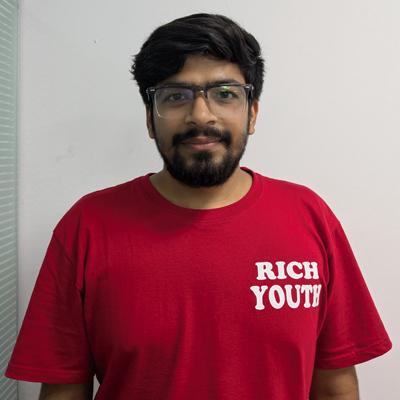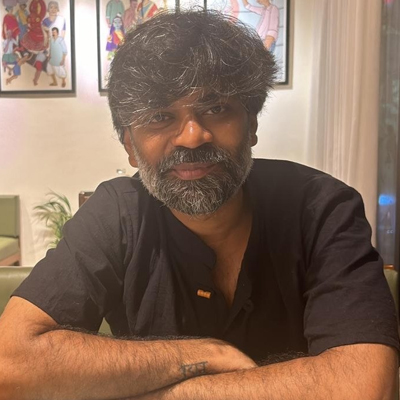![]() Prashasti Yadav
Prashasti Yadav
Agriculture is the backbone of India’s economy, employing over 50% of the population and being a key contributor to national GDP.
Yet, rural farmers in India grapple with an array of critical challenges, from water scarcity and soil degradation to market inaccessibility and the growing impacts of climate change. These challenges threaten not only agricultural productivity but also the long-term sustainability of rural livelihoods.
Despite various efforts to improve agricultural practices, a central question remains that how can sustainable agricultural practices address the challenges faced by rural Indian farmers such as water scarcity, soil degradation, and market access while also promoting environmental sustainability and economic stability?
The Roots Foundation has taken a proactive approach in introducing sustainable farming techniques, focusing on empowering farmers with tools like water conservation, natural soil management, and direct access to markets. However, the success of these initiatives requires overcoming key hurdles, including slow technological adoption, poor infrastructure, and limited financial resources for small-scale farmers.
Roots Foundation’s Vision and Goals
At Roots Foundation, our vision is straightforward – building an environmentally sound, economically viable farming sector through implementing ecological farming methods, preserving environmental resources, and cultivating community engagement and awareness.
Our goals include:
- Sustainable Soil Management: Achieve top-tier sustainable soil management by teaching organic farming and facilitating the use of natural fertilizers to improve agricultural output and combat environmental deterioration, which are important sustainable agriculture practices in India.
- Water Management: Improved water conservation in farming by strengthening efficient flooding systems and water-holding techniques.
- Biodiversity and Agroforestry: Help farmers implement biodiversity and agroforestry to diversify crop production.
- Community Empowerment: Empower local farmers through regular training sessions and resources.
- Partnerships and Collaboration: Form strategic partnerships with local governments, NGOs, and international organizations to scalable, sustainable agricultural programs.
Key Sustainable Agriculture Practices Promoted by Roots Foundation
Roots Foundation engages at the intersection of knowledge, practice, and policy to build sustainable agriculture practices in India. Our climate-resilient agriculture solutions cater to the most pressing challenges within the agriculture sector.
These programs include:
Natural Resource Conservation Program (NRCP)
This initiative focuses on reducing water usage and increasing efficiency through techniques like Direct-Sown Rice (DSR).
By training over 10,00,000 farmers in DSR, the Roots Foundation has drastically reduced water usage in rice cultivation, contributing to the conservation of over 1,125 million liters of water. This technique not only cuts costs but also enhances resilience against water scarcity, a critical issue in Indian agriculture.
Agriculture Productivity Enhancement Program (APEP)
Through the promotion of precision farming and integrated pest management, APEP has improved crop yields for over 10,000 farmers. The Roots Foundation leverages technology to enhance productivity, demonstrating the importance of using digital tools in agriculture.
For example, Project Bhoomi includes a technology transfer component where farmers are introduced to mobile applications for farm management and soil health monitoring.
Farm Produce Market Linkage Program (FPMLP)
One of the greatest challenges rural farmers face is market access. The Roots Foundation has helped over 6,000 farmers create direct links with food processing companies, allowing them to sell their produce without intermediaries, thereby increasing their income. It not only boosts economic independence but also helps farmers scale their operations sustainably.
Technology Transfer Program (TTP)
Our Technology Transfer Program introduces farmers to the latest technologies like farm management and precision agriculture tools that have helped over 10,000 farmers double their productivity and align with sustainable agriculture practices in India.
Community Engagement and Capacity Building
At the heart of the Roots Foundation’s initiatives is community engagement, ensuring that rural farmers and their families are actively involved in implementing sustainable agricultural practices. The Foundation’s approach emphasizes training and capacity building to create long-lasting change.
- Farmer Education and Technology Transfer: The Foundation has facilitated over 484 farmer meetings to introduce sustainable farming practices and technologies, providing practical training on tools such as crop residue management and Direct Seeding of Rice.
- Inclusive Participation of Women and Youth: Recognizing the pivotal role women play in rural communities, Roots Foundation also focuses on skill development for women through programs such as Project Unnati. This program has trained women in tailoring, candle-making, and eco-friendly product manufacturing, enabling them to contribute financially to their households while supporting sustainable practices.
- School and Infrastructure Development: The Foundation also engages in broader rural development efforts, including village school renovation projects. By improving school infrastructure and integrating technology into classrooms, the Foundation ensures that children from farming communities receive a quality education, which is vital for long-term sustainability.
Crop Residue Management and Project Bhoomi
Project Bhoomi addresses one of the most pressing environmental challenges in Indian agriculture: stubble burning. This harmful practice, common in states like Punjab and Haryana, contributes to air pollution and poor soil health.
The Roots Foundation’s Crop Residue Management (CRM) initiative aims to reduce the negative impacts of stubble burning by providing farmers with sustainable alternatives:
- Baler and Happy Seeder Technology: The Foundation has provided tools like balers and happy seeders to farmers in 120 villages in Haryana, allowing them to manage crop residue more effectively. This has not only improved soil health but also significantly reduced air pollution.
- Farmer Empowerment Through Market Linkages: In addition to providing new technologies, Project Bhoomi links farmers with stubble buyers, ensuring that farmers can sell their crop residues and gain economic benefits while contributing to environmental sustainability.
This program has already had a significant impact, with over 3 lakh acres of crop residue managed sustainably, making it a flagship example of how sustainable agriculture can benefit both farmers and the environment.
Challenges and Adaptive Strategies
Despite our efforts, we faced a few concurrent challenges, like the everchanging climatic conditions, economic pressures, and the slow adoption of new technologies.
At Root’s Foundation, we address these challenges head-on by adopting flexible strategies that accommodate environmental changes and fostering economic models. One such initiative was the ‘Carbon Credit Program’. This initiative not only mitigates carbon emissions but also turns into a viable financial model for the farmers.
Success Stories and Impact
The impact of the Roots Foundation’s initiatives can be seen in the success stories of individual farmers and communities:
- Bhupinder Singh, a farmer from Sherpur Kalan, Ludhiana, Bhupinder faced significant challenges due to labor shortages for pesticide applications. Through Project Sahyog, he was introduced to a tractor-mounted boom sprayer, which revolutionized his farming practices by making pesticide application easier and reducing his reliance on expensive labor. Bhupinder’s income doubled as he rented out the sprayer to other farmers in his community.
- Dayanand, a farmer from Shahpur Village, Haryana, partnered with Project Bhoomi to manage stubble over 250 acres of land using a baler. His participation in the project allowed him to contribute to reducing air pollution and earn a decent income.
These stories illustrate the transformative potential of sustainable agricultural practices, both in terms of productivity and financial stability for rural farmers.
Conclusion
The Roots Foundation’s commitment to sustainable agriculture practices in India has renewed hope and resilience in rural communities. Our journey towards attaining sustainability now has been long and fraught with challenges.
Still, with continuous effort and innovation, our sustainable agriculture programs expand their reach and refine their strategies, ensuring every farmer has the tools and knowledge to grow crops and a sustainable future for himself and the people.






















